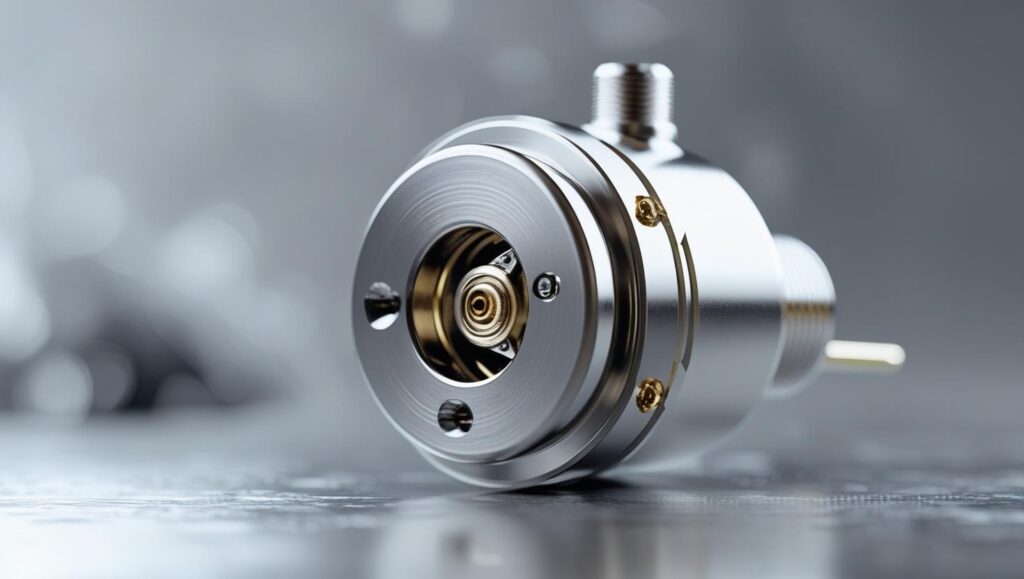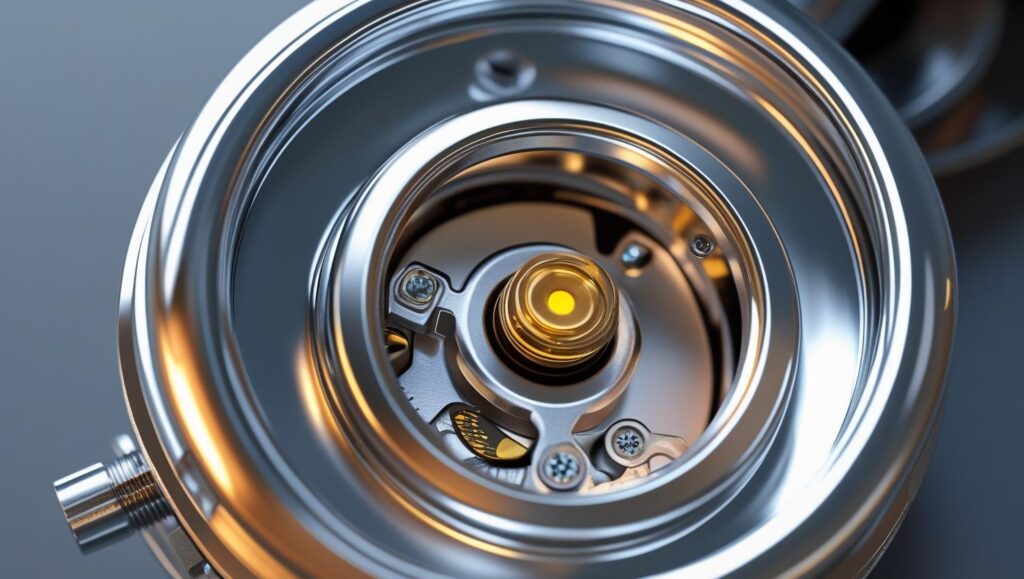The Hygrometer Sensor Market has witnessed significant growth in recent years due to increasing demand for precise humidity measurement across various industries. A hygrometer sensor is a device designed to measure humidity levels in the air, playing a crucial role in sectors such as healthcare, agriculture, automotive, and industrial manufacturing. The market is expanding as businesses and consumers recognize the importance of maintaining optimal humidity levels for efficiency, safety, and product quality.
With advancements in IoT and smart technology, the Hygrometer Sensor Market is evolving rapidly, integrating wireless connectivity and data analytics for real-time monitoring. This article provides an in-depth analysis of market trends, key drivers, challenges, and future opportunities shaping the Hygrometer Sensor Market.

Key Factors Driving the Growth of the Hygrometer Sensor Market
The Hygrometer Sensor Market is experiencing robust growth due to several key factors. One of the primary drivers is the increasing adoption of smart home and building automation systems. As consumers seek energy-efficient solutions, hygrometer sensors are becoming essential for smart thermostats and HVAC systems to maintain indoor air quality.
Another significant factor is the rising demand from the agriculture sector. Precision farming techniques rely on hygrometer sensors to monitor soil and air humidity, ensuring optimal crop growth conditions. Additionally, the healthcare industry utilizes these sensors in medical devices and laboratories to maintain sterile environments.
Technological advancements, such as the integration of AI and IoT, are further propelling the Hygrometer Sensor Market. These innovations enable predictive maintenance and remote monitoring, enhancing operational efficiency across industries. Government regulations on environmental monitoring and workplace safety standards also contribute to market expansion.
Applications of Hygrometer Sensors Across Various Industries
The Hygrometer Sensor Market serves a wide range of applications across multiple industries. In the industrial sector, these sensors are used in manufacturing plants to control humidity levels, preventing corrosion and ensuring product quality. The pharmaceutical industry relies on hygrometer sensors to maintain strict humidity conditions during drug production and storage.
In the automotive sector, hygrometer sensors are integrated into climate control systems to enhance passenger comfort. The food and beverage industry uses these sensors to monitor storage conditions, preventing spoilage and ensuring compliance with safety standards.
The agriculture sector benefits from hygrometer sensors by optimizing irrigation systems and greenhouse environments. Weather forecasting agencies also utilize these sensors to improve accuracy in meteorological data collection. The increasing adoption of hygrometer sensors in consumer electronics, such as smartwatches and air purifiers, further expands the market reach.
Emerging Trends and Technological Advancements in the Hygrometer Sensor Market
The Hygrometer Sensor Market is undergoing rapid transformation due to emerging trends and technological advancements. One notable trend is the development of miniaturized and wireless hygrometer sensors, enabling seamless integration into IoT-enabled devices. These sensors provide real-time data transmission, improving efficiency in industrial and residential applications.
Another significant advancement is the use of MEMS (Micro-Electro-Mechanical Systems) technology in hygrometer sensors. MEMS-based sensors offer higher accuracy, lower power consumption, and cost-effectiveness, making them ideal for portable and wearable devices.
Artificial Intelligence (AI) and Machine Learning (ML) are being incorporated into hygrometer sensors to predict humidity fluctuations and automate control systems. The rise of smart cities and green buildings is also driving demand for advanced hygrometer sensors with cloud connectivity for centralized monitoring.
Download PDF Brochure @ https://www.marketsandmarkets.com/pdfdownloadNew.asp?id=222120714
Challenges and Restraints in the Hygrometer Sensor Market
Despite its growth, the Hygrometer Sensor Market faces several challenges. One major restraint is the high cost of advanced hygrometer sensors, limiting adoption in price-sensitive markets. Additionally, calibration and maintenance requirements can pose operational challenges for end-users.
Another challenge is the lack of standardization in sensor accuracy across different manufacturers, leading to inconsistencies in performance. Environmental factors such as extreme temperatures and dust can also affect sensor reliability, requiring robust designs for harsh conditions.
Moreover, the complexity of integrating hygrometer sensors with existing systems may hinder market growth, particularly in small and medium enterprises with limited technical expertise. Addressing these challenges through innovation and cost reduction will be crucial for sustained market expansion.
Regional Analysis of the Hygrometer Sensor Market
The Hygrometer Sensor Market exhibits varying growth patterns across different regions. North America holds a significant market share due to the high adoption of smart home technologies and stringent industrial regulations. The presence of key players and technological advancements further strengthens the region’s dominance.
Europe follows closely, driven by increasing demand for energy-efficient solutions and government initiatives promoting sustainable practices. The Asia-Pacific region is expected to witness the fastest growth, fueled by rapid industrialization, expanding agriculture sectors, and rising smart city projects in countries like China and India.
Latin America and the Middle East & Africa are also experiencing gradual growth, with increasing awareness about humidity control in healthcare and food storage applications. Regional market dynamics are influenced by economic conditions, technological penetration, and industry-specific demands.

Competitive Landscape and Key Players in the Hygrometer Sensor Market
The Hygrometer Sensor Market is highly competitive, with several key players driving innovation and market expansion. Leading companies such as Honeywell International Inc., Siemens AG, Sensirion AG, and Texas Instruments dominate the market with advanced product offerings.
These companies focus on research and development to introduce high-precision, energy-efficient hygrometer sensors. Strategic partnerships, mergers, and acquisitions are common strategies to enhance market presence. Emerging startups are also contributing to market growth by introducing cost-effective and IoT-enabled sensor solutions.
The competitive landscape is characterized by continuous technological advancements, product differentiation, and expansion into untapped regional markets. Companies are also investing in customer education and after-sales support to strengthen brand loyalty.
Future Outlook and Growth Opportunities in the Hygrometer Sensor Market
The Hygrometer Sensor Market is poised for substantial growth in the coming years, with numerous opportunities on the horizon. The increasing adoption of Industry 4.0 and smart manufacturing practices will drive demand for advanced humidity monitoring solutions.
The expansion of IoT and AI applications across industries will further boost market prospects, enabling predictive maintenance and automated control systems. The growing emphasis on environmental sustainability and energy efficiency will also create new avenues for hygrometer sensor adoption.
Emerging markets in Asia-Pacific and Africa present significant growth potential due to rising industrialization and urbanization. Innovations in sensor technology, such as self-calibrating and low-power hygrometer sensors, will enhance market competitiveness.
The Hygrometer Sensor Market is on a steady growth trajectory, fueled by technological advancements and increasing demand across multiple industries. From smart homes to industrial automation, these sensors play a vital role in ensuring optimal humidity levels. While challenges such as high costs and calibration issues persist, innovations in IoT and AI are paving the way for future expansion. Businesses and investors should closely monitor market trends to capitalize on emerging opportunities in this dynamic sector.
Frequently Asked Questions (FAQs) About the Hygrometer Sensor Market
What is a hygrometer sensor?
A hygrometer sensor is an electronic device that measures humidity levels in the air, widely used in industries such as healthcare, agriculture, and manufacturing.
What are the key applications of hygrometer sensors?
Hygrometer sensors are used in HVAC systems, smart homes, agriculture, automotive climate control, pharmaceuticals, and weather forecasting.
Which regions dominate the Hygrometer Sensor Market?
North America and Europe currently lead the market, while Asia-Pacific is expected to grow rapidly due to industrialization and smart city projects.
What are the latest trends in the Hygrometer Sensor Market?
Key trends include IoT integration, AI-powered humidity prediction, MEMS-based sensors, and wireless connectivity for real-time monitoring.
Who are the major players in the Hygrometer Sensor Market?
Leading companies include Honeywell, Siemens, Sensirion, Texas Instruments, and Omron.
What challenges does the Hygrometer Sensor Market face?
High costs, calibration requirements, environmental factors, and integration complexities are some of the key challenges.
What is the future outlook for the Hygrometer Sensor Market?
The market is expected to grow significantly, driven by smart technologies, industrial automation, and increasing demand for precision humidity control.